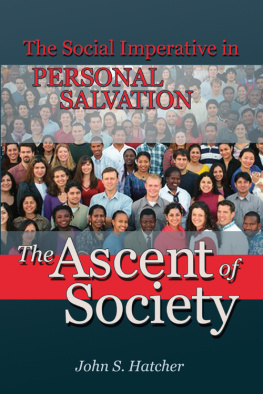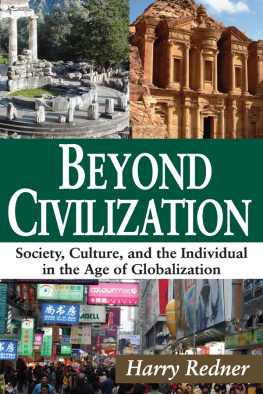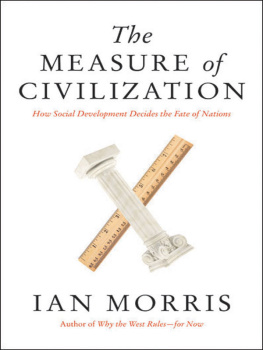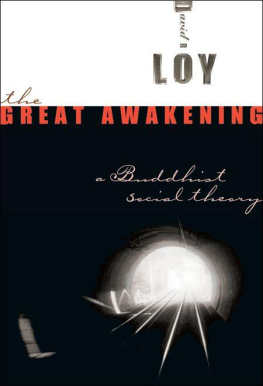Hatcher - The Ascent of Society: The Social Imperative in Personal Salvation
Here you can read online Hatcher - The Ascent of Society: The Social Imperative in Personal Salvation full text of the book (entire story) in english for free. Download pdf and epub, get meaning, cover and reviews about this ebook. City: Minneapolis, year: 2007, publisher: Bahai Publishing, genre: Religion. Description of the work, (preface) as well as reviews are available. Best literature library LitArk.com created for fans of good reading and offers a wide selection of genres:
Romance novel
Science fiction
Adventure
Detective
Science
History
Home and family
Prose
Art
Politics
Computer
Non-fiction
Religion
Business
Children
Humor
Choose a favorite category and find really read worthwhile books. Enjoy immersion in the world of imagination, feel the emotions of the characters or learn something new for yourself, make an fascinating discovery.
The Ascent of Society: The Social Imperative in Personal Salvation: summary, description and annotation
We offer to read an annotation, description, summary or preface (depends on what the author of the book "The Ascent of Society: The Social Imperative in Personal Salvation" wrote himself). If you haven't found the necessary information about the book — write in the comments, we will try to find it.
The Ascent of Society: The Social Imperative in Personal Salvation — read online for free the complete book (whole text) full work
Below is the text of the book, divided by pages. System saving the place of the last page read, allows you to conveniently read the book "The Ascent of Society: The Social Imperative in Personal Salvation" online for free, without having to search again every time where you left off. Put a bookmark, and you can go to the page where you finished reading at any time.
Font size:
Interval:
Bookmark:
by John S. Hatcher

Wilmette, IL 60091
Bah Publishing, 415 Linden Avenue, Wilmette IL 60091-2844
Copyright 2007 by the National Spiritual Assembly of the Bahs of the United States
All Rights Reserved. Published 2007
Printed in the United States of America on acid-free paper
10 09 08 4 3 2
Library of Congress Cataloging-in-Publication Data
Hatcher, John, Dr.
The ascent of society : the social imperative in personal salvation / by John S. Hatcher.
p. cm.
Includes bibliographical references.
ISBN 13: 978-1-931847-52-0 (alk. paper)
ISBN 13: 978-1-618511-15-7 (ebook)
ISBN 10: 1-931847-52-5
1. BahaisReligious life. 2. HistoryReligious
aspectsBahai Faith. 3. Civilization.
I. Title.
BP380.H374 2007
297.932dc22
2007060814
Cover and book design by Suni D. Hannan
Cover photo: A group of Bah youth from a diverse range of countries, serving as volunteer staff at the Bah World Center, 2004 Bah World Center 2007
For Lucia
I wish to express my gratitude to senior editor and director of acquisitions Terry Cassiday, to editor Bahhaj Taherzadeh, and to Lee Davidson for helping me to comb out some of the knots and tangles in this attempt to make comprehensible a complex subject. I also wish to thank Bah Publishing Trust general manager Tim Moore for believing my discussion of this vitally important subject worthy of sharing with the public at large. Finally, I wish to thank my wife, Lucia; she consistently says more with actions than I do with words.
In the new edition of The Purpose of Physical Reality published in 2005, I examined the hypothesis that the justification for essentially spiritual beingshuman soulstaking their beginning in a physical environment is that physical reality, as the initial stage in the endless journey of the soul, is a precisely devised classroom whereby autonomous transformation is initiated and assisted as preparation for birth into a spiritual existence. In such a context, our individual objective in this life is to acquire tools and capacities that will prepare us for the continuation of our lives in a nonphysical reality, much as the gestation of the child in the womb prepares the infant for successful existence in the physical world.
One essential ingredient in this process of preparation, however, may not be readily apparent in that study, and that is the relationship between personal spiritual preparation and a social imperative. For where The Purpose of Physical Reality focuses on the question of theodicy (discovering Gods justice in an ostensibly unjust world) from an individual or personal perspective, implicit in that discussion and explicit throughout Bah scripture is the inextricable connection between learning spiritual lessons and involvement with others who are attempting the same thing. On the simplest level, spiritual virtues almost inevitably involve some sort of human relationship. Until a virtue becomes practiced and exercised, it is mostly theoretical because the majority of spiritual attributes, like justice, kindness, and human goodness in all its forms, are developed and manifest through interaction with others.
But the social imperative is also evident in another aspect of the paradigm of human spiritual development. In The Purpose of Physical Reality human purpose in the physical world is portrayed as a twofold process whereby we discern spiritual verities as they are given concrete form in physical reality, and then we manifest that understanding in some metaphorical action. The book further demonstrates that such a process can enable us to achieve successively higher levels of insight followed by ever more eloquent expressions of that knowledge in action. And yet what may not be apparent is that this process is not an end in itself, but the means to an end.
A further study of Bah scripture makes it clear that the underlying objective of this exercise is the expanded sense of self. For not only do each of these successive levels of understanding and action require ever more expansive social relationships, each level of comprehension also reveals in an ever more complete way that our individual reality develops only when it relates to increasingly more inclusive or expansive expressions of ourselves. Abdul-Bah writes,
Every imperfect soul is self-centered and thinketh only of his own good. But as his thoughts expand a little he will begin to think of the welfare and comfort of his family. If his ideas still more widen, his concern will be the felicity of his fellow citizens; and if still they widen, he will be thinking of the glory of his land and of his race. But when ideas and views reach the utmost degree of expansion and attain the stage of perfection, then will he be interested in the exaltation of humankind. He will then be the well-wisher of all men and the seeker of the weal and prosperity of all lands. This is indicative of perfection.
Consequently, the ultimate goal of spiritual ascent is, when properly understood, the achievement of a kind of selflessness that results not from self-effacement, self-deprivation, or self-neglect, but from a fulfillment that occurs when we freely choose to become a functioning part of a greater expression of self. Therefore, where The Purpose of Physical Reality discusses Gods justice in conjunction with our personal relationship to physical reality, this continuation of that study emphasizes the relationship of that personal transformation to the entire plan of divine justice at work in the world. In particular this discussion focuses on the Bah belief that human history itself is a divinely guided process whereby spiritual principles are gradually and progressively expressed in social institutions. From this perspective, humankind is viewed as one coherent organism whose collective history parallels the stages of development characteristic of individual spiritual evolution.
Even as a cell in the human body is unavoidably affected by the health of the organism to which it is inextricably linked, so the aspirant to spiritual transformation cannot view personal health and development as being possible apart from the progress of human society as a whole. This study will attempt to demonstrate how the social order revealed in the Bah scriptures provides the long-awaited workshop, the framework for action, by which the collective social advancement of civilization supports and works in concert with the individuals attempt to fulfill his or her inherent purpose.
Unification of the whole of mankind is the hall-mark of the stage which human society is now approaching. Unity of family, of tribe, of city-state, and nation have been successively attempted and fully established. World unity is the goal towards which a harassed humanity is striving. Nation-building has come to an end. The anarchy inherent in state sovereignty is moving towards a climax. A world, growing to maturity, must abandon this fetish, recognize the oneness and wholeness of human relationships, and establish once for all the machinery that can best incarnate this fundamental principle of its life.
Shoghi Effendi, The World Order of Bahullh
Though the vision of the Bah Faith is world-embracing, the central teachings of the religion clearly demonstrate that any goal of world unity must be founded on the recognition and wholehearted safeguarding of the rights and privileges of every single individual on the planet. Stated even more forcefully, world unity can be accomplished through no other means than the establishment of a global system whereby the security and sacredness of each person is upheld as being consonant with and inseparable from the health and integrity of the whole of humankind.
Font size:
Interval:
Bookmark:
Similar books «The Ascent of Society: The Social Imperative in Personal Salvation»
Look at similar books to The Ascent of Society: The Social Imperative in Personal Salvation. We have selected literature similar in name and meaning in the hope of providing readers with more options to find new, interesting, not yet read works.
Discussion, reviews of the book The Ascent of Society: The Social Imperative in Personal Salvation and just readers' own opinions. Leave your comments, write what you think about the work, its meaning or the main characters. Specify what exactly you liked and what you didn't like, and why you think so.














